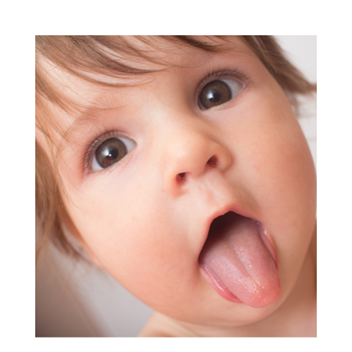You may have had this experience; you came in for your first appointment at the Acupuncture clinic. You and your provider have talked in depth about what brought you in, and about a whole lot of other things that seem kind of unrelated. Then they ask you, ‘Can you show me your tongue?’
What? Really?
Why do acupuncturists look at tongues? The simple answer is that the appearance of the tongue tells us a lot about your health! The more involved answer is that as practitioners of Chinese medicine, we believe that if one part of the body becomes diseased, other parts of the body will show signs of disease as well. Essentially, the tongue is a mirror for what is going on inside the body – past and present.
What are we looking for? We check the tongue color, shape, and mobility. We then look at the color and form of the coating on the tongue. We look to see what areas of the tongue are more red or more pale than others, and if there are any peeled areas on the tongue coating. Does the tongue appear swollen with teeth marks on the sides? Is the tongue “shaking” or pulled off to one side? All of these characteristics tell us how your body is functioning.
What does it all mean? In the broadest sense, the tongue will show the amount of energy and blood your body is operating with, and how well the body’s organs are functioning together. Here are a few general signs:
A pale tongue might suggest blood deficiency or anemia.
A red tongue could indicate heat or inflammation.
A purple or bluish tongue might indicate circulation issues.
A yellow coating could suggest excess heat or dampness in the body.
A swollen tongue may indicate fluid retention or a weakness in the digestive system.
After eating a meal, it is normal for a white coating to appear on the tongue. How quickly that coating thins after eating is a reflection of the strength of the digestive system.
Tongue examination is a common practice in many healing systems and has been for a long time. It is a simple examination that gives us so much information. Like checking the pulse, diagnosing by examining the tongue is considered a medical art. However, using differential diagnosis based on the paradigms of traditional Chinese medicine, this medical art can be applied in a scientific way.
Lauren Peabody, L.Ac.
